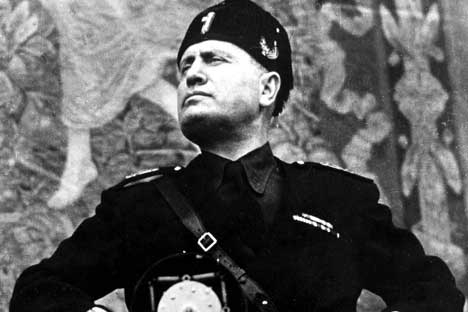Home of the Militant Middle, Another Opinion ("A/O") is an Independent oriented "OpEd" blog for those looking for unbiased facts free of partisan drama and who are willing to question the Status Quo.
Saturday, February 07, 2015
The Income Gap
We've all heard the expression that "the rich get richer while the poor get poorer". Well there's a great deal of truth in that old adage--the rich are indeed richer---much richer, and the poor are incredibly more poor while the middle class as we've known it has all but disappeared into the ranks of the emerging Struggling Class as I call it. The last time there was such a broad wage gap between the rich and poor were the years just prior to the Great Depression in 1929. In fact, not only do we have a greater disparity between the rich and everyone else, the chiasm is actually deeper too than it was in 1929. The top 1% controls 40% of the total wealth while the bottom 80% controls just 7% of the wealth. They own 50% of all investments, from stocks to mutual funds. To put it another way, in 2012, 24% of the total take home pay went to the top 10%. In 1976, it was just 9%.
As a few Americans know, the United States fell from first to second place behind China as the world's largest economy in 2014. Whatsome may not know was that the American middle class dropped from the world's most "affluent" to second place, behind Canada and is continuing to drop. Academically, America high school students rank, on average, 14th in world. In terms of economic freedom, the US is ranked 12th by the Heritage Foundation. Regarding personal freedom, we are 21st, between Portugal and Spain. In terms of democratic freedom, the US was ranked 15th in the world according to Global Democracy Ranking. This ties into the most telling story from 2014, a study confirming that the United States was no longer a democratic republic as established by our Founding Fathers. We have, in fact, become an oligarchy---rule by a small elite and blindingly rich group of individuals. Combine this with the "Citizen's United" misruling by the Supreme Court five years ago, and one can begin to see why. "How's that?" you may wonder. The typically story line is that "we're going socialist", so how can we be get more "socialist" if corporations are becoming more richer and powerful?
Well, that's the rub isn't it? You see, "socialism" has never actually existed. Yes, we've had countries call themselves that because that was the goal they were attempting to reach. Russia wanted to achieve a socialism based on the teachings of Karl Marx and Fredrick Engels, however in his efforts to bring this about, Lenin "corrected" Marx to use his expression to make the rules fit with his reality. His expressed goal, however, was to shrink government to the size of the local Post Office and maximize individual freedom, that it, after the transition from capitalism through the "dictatorship of the proletariat". Stalin, who succeeded Lenin, was never all that interested in socialism in any form and as far as he was concerned, the dictatorship would remain in place. Stalin's interest was in power. So through forced collectivization and the use of a Police State and its gulags, converted Russia from a backward agricultural nation to a modern industrial fascist-like State with the State owning the corporations; not exactly what Marx had in mind. Hitler too used the term "socialism", but it didn't have the same meaning as we normally think of it. To him and the Nazi elite, the word meant more of community of likeminded individuals. Thus "National Socialism" meant a community of Germanic People who shared a common culture and origin, yet corporations worked in partnership with the government.
As for fascism itself, its founder, Benito Mussolini, envisioned it a working partnership between the big corporations and the government; the two would be interwoven. In fact, Mussolini, was actually elected to his position (and later voted out) just like a corporate board. Fascism not only borrows from both the political Left and Right, it also can vary from country to country based on its culture and traditions. In other words, fascism adapts and it appearance can be very deceiving.
A precursor to fascism is typically an oligarchy, which is basically rule by a small elite (often rich and powerful) group. In our case, we morphing into a fascist State where corporations will have more of a leading role rather than a equal partnership. Another feature of fascism is a tendency toward militarism, which our never-ending "war on terrorism" conveniently provides, and a increased militarized mindset of law enforcement, State controlled or influenced media or propaganda, increased surveillance and a "divide and conquer mentality" of the population, not to mention a shifting of the wealth (and power) toward the ruling elite. Does any of this sound familiar? And that dreaded "socialism" I was speaking about earlier? Well that means the equality or at least a parity of wealth among everyone and common ownership of most things. Corporations would essentially be employee owned and operated with employees electing board members (one employee/one vote), so there would be no need for a Wallstreet. Banks, if they existed, would look more like credit unions. Utilities and energy sources would be nationalized. Taxes would be high, but then things like housing and groceries would be subsidized while education, medicine and medical care, with the emphasis more on prevention than treatment most likely, would be free. The closest examples I can think of would be found in Holland and Scandinavia before the big influx of immigration.
Another old saw says that "it takes money to make money". Well, there's still truth in that, except the money is less spent and more "invested"; invested in the corridors of power that is. Not only did Citizens United essentially give corporations--these man-made legal fictions---the same rights as you and I, but actually certain rights which exceeded those of the average citizen, at least when it comes to making political contributions. Combine this with what's known as "regulatory capture", and you can see we are in a serious jam. Oh, what's "regulatory capture" you ask? Simply this, it puts foxes in charge of the chicken coup, or more accurately, it gives the keys to the bank to the crooks. Regulatory capture basically puts those being regulated, such as financial institutions, in charge of the regulatory process by either allowing them to help draft the regulations themselves and/or managing the agency in charge through the process of appointment. Considering that many of those elected to Congress pal around with these individuals or at the least are a beneficiary of their largesse, it's little wonder that there's constantly a "loop hole" of some sort in the various laws. Many of those called upon to help draft regulations are the very lobbyist paid to represent that industry's interests, and those appointed are often the ones recommended by these very same individuals! Now you see what I mean by the fox and the chicken coop.
So where does that leave us? I'm afraid not very well off. Adjusted for inflation, real wages, which peaked in the early 1970's, stagnated, and has been in decline ever since. Part of the reason has to be the off shoring of mostly middle income jobs and with it, many of the peripheral businesses (not to mention the rise of so-called box stores and decline in "Mom and Pop" local stores). In addition, we have the decline in private sector unions; down to around 6.7%. When you include public sector unions, the number rises to only 11.3%, which, interestingly, are the lowest numbers since the Great Depression. Like them or not, unions have been not just the mainstay of middle class jobs but also served as a counter weight to the influence of corporations. In additional, US workers suddenly found themselves competing with workers continents away for the same job but a fraction of the costs. Average hourly wages, adjusted for inflation, rose 75% between 1947 and 1972 during the heyday of unions. Since then, it's risen only 9%. From 1947 through 1979, all income grew at approximately the same average rate with lower income wages actually leading the pack which created a large middle class and smaller class proportions at either ends of the scale. Between 1979 and 2012, real incomes increased 74.9% for the top 1% while the bottom 1/5th actually saw a decrease of just over 12%.
Real consumption spending by the top 5% increased by 17% since 2009 but only 1% by the remaining 95%. Globally, it also means that globally 41% of all wealth is in the hands of just 1%. Those with incomes below USD $10,000.00 represent 69% of the world's population. That's just 3% of the total global wealth. Upper end net worth is 70x that of those in the lower income bracket. That's the highest disparity in 30 years according to a Pew Report from 2015. In 1979, pre- tax income among the 1% received 8.9%. By 2012, that number reached almost 23%. Average real wages (adjusted for inflation) has increased by an annual rate of just 1% or 1/2 the productivity growth rate since 1980. However, the highest percentage was reserved for the top 10%, with CEOs earning, on average 380% more than the salary of their average employee.
Anyway, you slice it, the figures simply don't look good for 95% of Americans or the majority of world populations for that matter. So what can be done? A number of thing actually such as removing individuals in the same industry to draft its own regulation; ending gerrymandering to allow for fresh ideas and at least make it more difficult for lobbyists to buy politicians; end direct and indirect subsidies (corporate welfare) to large corporations and focus on small and medium businesses; restrict present Congressional members and staffers from working with or for special interests companies or lobbying firms for at least 10 years, including serving as a "consultant". Make public all contact with lobbyists. Revoke "Citizen's United" and prohibit corporate donations to political campaigns.
Finally, restore the American Dream by cutting red tape that restricts competition, especially from small and medium size companies. Meanwhile, you and I can shop as often as possible at locally owned stores or farmer markets, and we can support independent and third party candidates; We can become citizen activists and use our social networks to spread the message, attend meetings and speaking out; We can write letters and send emails to those elected to represent us, be it in City Hall or Congress. Remember that in the long run the only true power any of them have is our obedience.
Income Inequality
http://inequality.org/income-inequality/
Wealth inequality in America: It's worse than you think
http://fortune.com/2014/10/31/inequality-wealth-income-us/
Income Inequality Is a problem
http://reason.com/archives/2015/01/22/income-inequality-is-a-problemwhen-cause
The Rising Cost of U.S. Income Inequality
http://www.huffingtonpost.com/laura-tyson/us-income-inequality-costs_b_6249904.html
Income Inequality
http://www.pewresearch.org/topics/income-inequality/
Global Democracy Ranking
http://democracyranking.org/?page_id=738
Labels:
1%,
Citizens United,
Congress,
Corporate welfare,
economics,
education,
elections,
fascism,
freedom,
income gap,
Income inequality,
inflation,
Middle Class,
Obama,
Politics,
poor,
poverty,
Socialism,
unions,
wages
Subscribe to:
Post Comments (Atom)






No comments:
Post a Comment